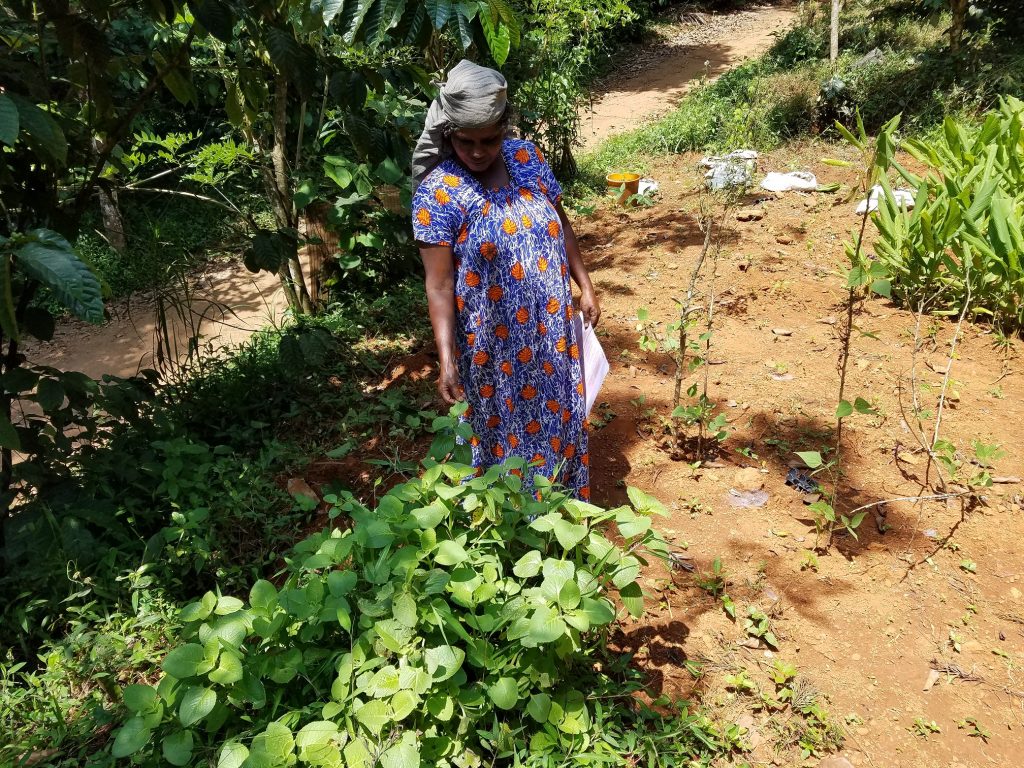 October 24, 2017
October 24, 2017
Today officially marks the end of my first week in Prashanthagiri, and I’m just getting my feet wet in my role as Field Fellow — both metaphorically and literally.
This morning I accompanied Gilgy on a partial field visit, stopping in at 11 of the 30 participating homes to check in on the progress of their provided seedlings and other produce plants for the Organic Kitchen Garden (OKG) initiative. The field visit came as a bit of a surprise for me as I’m still setting up my calendar and getting a feel for things, which is how I ended up wearing pants that were definitely too long for trekking through half a kilometer of marshland.
Combined with my natural clumsiness, this led to me tripping and falling into the mud more than once. Other than that minor hiccup, however, the visit went smoothly; I met many more members of the community, practiced stumbling through Malayalam greetings with them, and I was able to develop a stronger understanding of how Profugo’s OKG program works.
The Organic Kitchen Garden is an initiative designed to reduce the use of chemically-based fertilizers and pesticides in the village in order to ensure better long-term health of the residents. The Wayanad agricultural community has struggled in the past with indiscriminate use of harmful pesticides and fertilizers, contributing to toxic environmental pollution, an infant mortality rate that is three times the state average, and “a major rise in cancer incidence” in the district (1). Profugo began the OKG program in 2014 in response to this issue, recognizing that an organic movement could have a significant positive impact in a farming-dependent community like Prashanthagiri.
Each planting season, seedlings are distributed to about 150 households, and periodic visits are made by staff members to evaluate the quality of the gardens and collect information about household gardening practices and responsibilities. At the end of the season, the five best-maintained and healthiest organic gardens are chosen to receive prizes! The OKG program creates an incentive for the spread of natural, healthy, non-chemical farming practices, helps households reduce produce costs and provides a larger example for the community with the garden we maintain behind Profugo’s Center of Development (now featuring a recently planted avocado orchard, the fruits of which I am personally excited to reap!).
I admit I’ve never been much of a green thumb myself; my talents tend to be more artistic or analytic in nature. But the value of this program is clear to me, and I am thrilled at the opportunity to learn and grow in learning new methods of agriculture alongside this wonderful and welcoming community. If one thing is clear to me about this Field Fellowship experience already, it’s that I am in for a year of brand new experiences. To this I say: bring it on – mud and all!
References:
1 Vengattil, M. (2016, December 29). An environmental time bomb. The New Indian Express. Retrieved from: http://www.newindianexpress.com/states/kerala/2016/dec/29/ an-environmental-time-bomb-1554016.html

Leave a Reply
You must be logged in to post a comment.